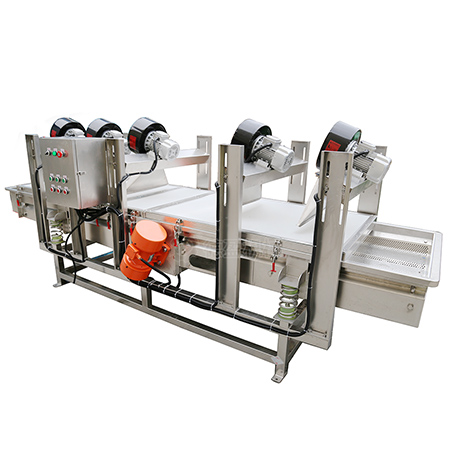Vegetable drying has been a time-honored method of preserving the nutritional value of fresh produce for centuries. In today's world, where the demand for year-round vegetable supply continues to grow, the importance of vegetable drying in food preservation cannot be overstated. This article explores various aspects of vegetable drying and its integral role in ensuring food security, reducing waste and promoting sustainable development.

Extended shelf life: Extended shelf life: Dried vegetables have a significantly longer shelf life compared to fresh vegetables, reducing the need for frequent refills.
Prevents spoilage: Drying vegetables removes the moisture needed for microorganisms to thrive, preventing the growth of bacteria, yeast and mold that cause spoilage.
Reduce food waste: Minimize leftovers: Drying vegetables offers a practical solution for preserving leftovers from the harvest, preventing excess produce from going to waste.
Year-round supply: By drying and storing vegetables during the peak season, we can ensure a stable food supply throughout the year and reduce reliance on seasonal supplies.
Nutritional preservation: Preserves Vital Nutrients: The drying process helps preserve essential vitamins, minerals, and antioxidants in vegetables.
Minimizes nutrient loss: Unlike some preservation methods, drying minimizes nutrient loss, ensuring that dried vegetables remain a nutrient-dense food source.
Economic benefits: Cost-Effective Preservation: Vegetable drying provides a cost-effective method of preserving vegetables on both small and large scales, contributing to economic sustainability.
Market Access: Dried vegetables open up new markets for farmers, allowing them to sell their produce after the harvest season.
Energy saving preservation: Lower energy consumption: Vegetable drying generally requires less energy than canning or freezing, making it an energy-efficient method of preservation.
Compatibility with solar drying: The use of solar drying methods further reduces reliance on traditional energy sources and is in line with sustainable practices.
Space-saving storage: Reduced storage space: Dried vegetables take up significantly less space than fresh produce, making them easier to store and transport.
Ideal for emergencies: Compact storage makes dried vegetables ideal for emergency food supplies, providing nutrition when needed.
In the pursuit of sustainable food practices, vegetable drying becomes a cornerstone of preserving nature’s bounty. From retaining essential nutrients to reducing food waste and providing economic benefits, the importance of vegetable drying in food preservation cannot be overstated.




